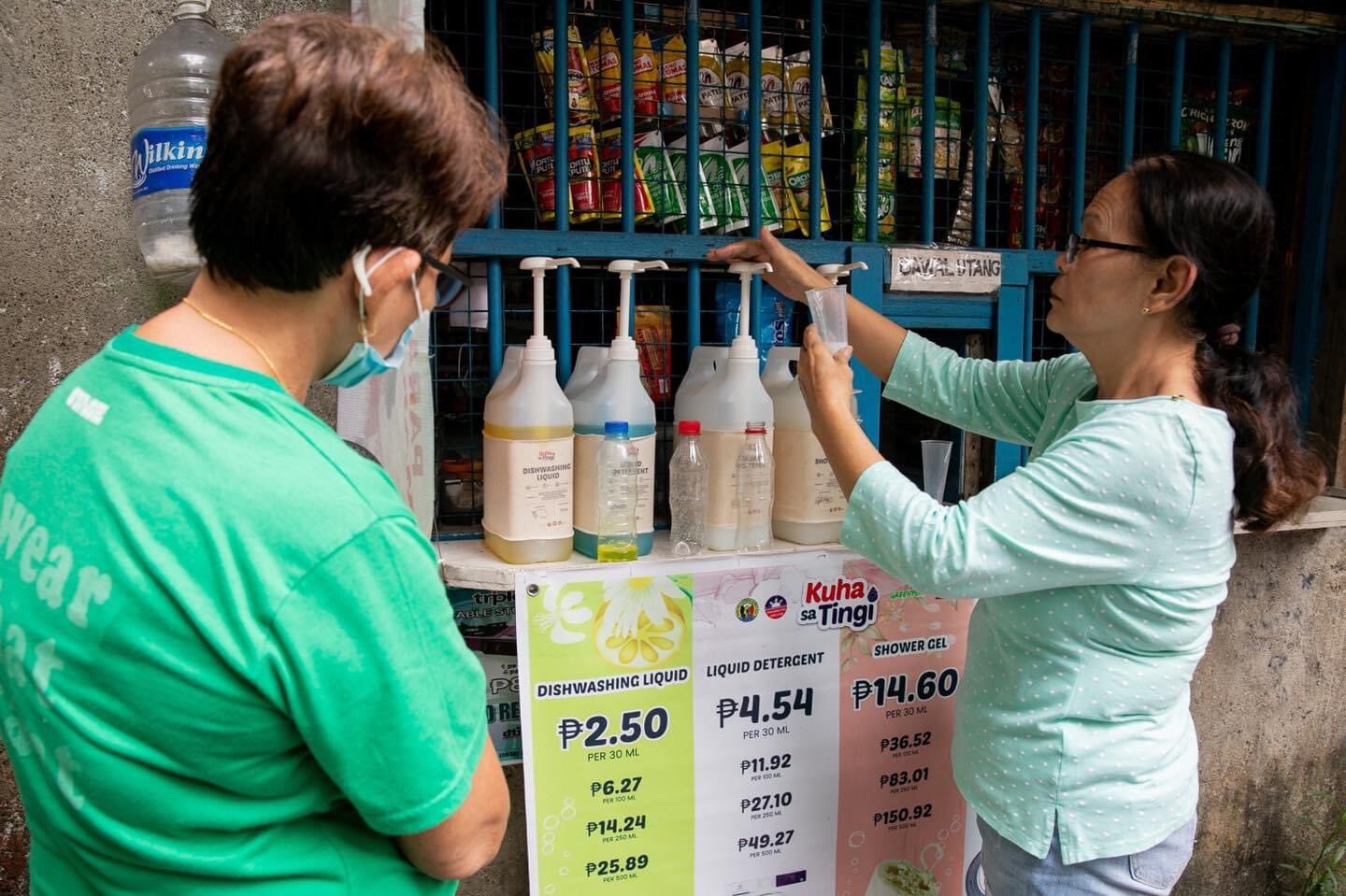Quezon City government announced over the weekend that it has partnered with Greenpeace Philippines to tackle the urgent plastic pollution crisis and enhance existing city ordinances regulating the use of single-use plastics.
Co-developed with community stakeholders and the city government, Kuha sa Tingi seeks to provide accessible and affordable alternatives to sachets and plastic-packaged goods. The project aims to empower communities to access goods without contributing to plastic pollution by promoting reuse and refill systems.
Quezon City Mayor Joy Belmonte believes this is a critical initiative, stating, “Kuha sa Tingi is a testament that being sustainable and eco-friendly can be affordable and inclusive, especially for those who belong to the marginalized sector.
“With this initiative, we were able to lessen the usage of products in sachets, and at the same time prevent these from ending up in our waterways when not properly disposed of,” she said.
The program started on 10 July 2023 with 30 participating pilot stores. Throughout the 8-week program, sari-sari stores were able to gain a total of P143,286 in sales, an average of 4,776 per store, and consumers were able to save P143 per week. They were able to divert 47,601 sachets or a total of 1,428,030 mL of plastics in volume.
Given the magnitude of this issue and the surge in plastic production in recent years, Greenpeace believes it is imperative to implement effective and impactful solutions to reduce production and dependence on single-use plastic. The project does so by developing a sustainable business model anchored on concepts of reuse and refill as well as providing consumers with an array of zero-waste alternatives that are simple, affordable, and readily accessible for their daily needs.
“Extending across multiple barangays and various types of enterprises in Quezon City, Kuha sa Tingi is a testament to the broad range of positive impacts of reuse and refill systems. This proves the viability, affordability, and accessibility of reuse and refill systems as alternatives to sachets, offering a tangible solution to diminish plastic pollution within our communities. The results of Kuha sa Tingi show that companies can adopt reuse and refill, and they should do so immediately,” said Marian Ledesma, Zero Waste Campaigner at Greenpeace Philippines.
Cities, communities, and local enterprises are currently at the forefront of pioneering solutions to combat plastic pollution through the advancement of business models centered around the reuse and refill systems. Under the Global Plastics Treaty, governments are mandated to support these existing efforts and future development by establishing global standards and mechanisms to enable refill and reuse to be supported, replicated, and scaled across countries and regions.
“Major contributors to plastic pollution, such as plastic-dependent corporations and fossil fuel companies that are reaping benefits from the proliferation of plastic products, should be held accountable to reduce plastic production and phase out single-use plastics. Companies must be obligated to adapt and integrate the reuse and refill systems into their business models. This shift is essential for mitigating the environmental impact of their operations,” said Ledesma.
“The program empowers our community to do their part in protecting our environment. This will serve as an inspiration to other sari-sari store owners, barangays, and even companies to reduce their plastic waste and switch to reusable and sustainable options,” Mayor Belmonte added.
Greenpeace is calling on governments to engage in reuse and refill initiatives like Kuha sa Tingi, and urging them to strengthen public policies that regulate the production and use of single-use plastics.
